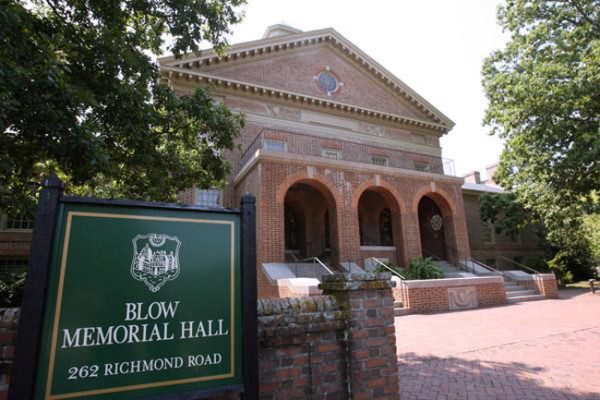The class of 2019 will be the first students to take COLL100 and COLL150 courses as part of the new College Curriculum.
Planning for the new curriculum began in 2008 among a group of faculty known as Fellows for the Center of the Liberal Arts, whose goal was to reevaluate the College of William and Mary’s liberal arts education for a new generation.
While the COLL150 courses will retain the same structure and content as the former freshman seminars, the COLL100 courses are newly developed to tackle “great ideas” in ways to make students effective and nuanced communicators. Both of these COLL courses will be capped at small numbers.
“[They] open up pathways [for professors] to bring their research interests into the classroom experience,” physics professor and Center of the Liberal Arts Fellow Gene Tracy said.
The 150 courses will continue to have around 15 students, as small classes were seen to be a successful part of the previous curriculum.
“The purpose is for students to get to know the faculty and other students, and work on writing embedded in a content course,” Tracy said.
In biology professor Beverly Sher’s COLL150 class, emerging diseases, she places emphasis on asking good questions.
“To prepare for class, students read the assignment for the day and then prepare a set of discussion points, comments and questions about the reading that they want to discuss in class,” Sher said.
Students will also give a short oral presentation on a scientific journal article and facilitate a question-and-answer session about it, as well as complete two major formal writing assignments — a book review and a library research-based term paper.
Like the 150 courses, the COLL100 courses will also allow students to go through the draft, feedback and revision process, but on assignments that develop communication skills beyond the traditional research essay. Additionally, they allow students to apply the concepts that they learn to their personal lives.
For instance, theatre professor Matthew Allar’s COLL100 course, the storyteller’s journey, is broken down into five “impulses,” or ways, of storytelling: voices, images, moving pictures, sounds and words. This means that students will analyze cultural products of various mediums.
“They’ll get a unique blend from radio drama, to contemporary memoir, to popular music, to obscure artwork,” Allar said.
Students’ analysis will then aid them in creating and sharing a digital portfolio of their own work that tells their own stories in various ways. Students will also respond to each other’s work through online blog entries.
Scales in the universe, physics professor Rosa Lukaszew’s COLL100 course, uses physics concepts to illustrate the idea of scales, or parameters in life, which students will then apply to other topics that interest them, whether it be history, human behavior or other areas.
“My goal is to go from the very tiny to the very large, and from the very short time scales — things that are ridiculously fast — to the age of the universe. I want to expose students to those ranges, in size and in time … I will try to instill a scientific approach to everything. To question your methods is a good idea regardless of your endeavor. We will observe, measure, and deduce to see if there is a pattern, and see if they can come up with something similar in other areas,” Lukaszew said.
The class will be a mixture of lecture and discussion, and Lukaszew will ask students to explore their own interests within the main frame of the course through reaction papers and class presentations.
“I will let [students] go freely to develop presentations and papers about things that matter to them,” she said.


[…] https://flathatnews.com/2015/08/20/freshmen-coll-curriculum-liberal-arts/ […]